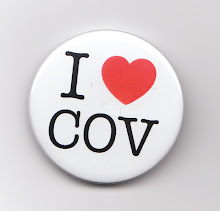
Having looked at a back to basics trading system with local currency like the Brixton Pound, I wanted to look at the idea of paying for goods/services without currency in a true back to basics way. This is how I came across the Asda barter boards.
In September 2008 an Asda store in Colne, Lancashire became the first supermarket store in the UK to create a bartering scheme, where customers could exchange skills and services for free. The barter boards came as part of the supermarket's local week, where customers are provided with freshly sourced local produce. However due to the recession they decided to also create a bartering scheme.
The Lancashire Telegraph explain, "The boards, set up by Asda’s general store manager Mark Edwards, offer people the chance to share their skills and cut costs using barter, which founded many of Britain’s original markets. Customers can use the board to trade services and skills. Some examples include piano lessons being exchanged for guitar lessons and someone offering gardening services for a patio. Customers can leave personal details such as phone numbers but for security reasons are advised not to leave addresses."
The store manager also added, "Mr Edwards said: “We understand that our customers are feeling the pinch right now and as well as keeping our prices low, we decided to provide a community service that wasn’t for our profit but for local people to work together and beat the credit crisis. The barter boards are not only a way for customers to save money but are a return to traditional British community values. Colne is a real community store and Lancashire has a great history of trade, so it seemed the perfect place to let customers try their hand at bartering.”
Due to the local success of the scheme Asda is planning to continue the scheme next year at a larger number of stores. I could see this working outside of Asda stores and outside of the UK because it allows people achieve more by working together. While this way of trading has become outdated there are also advantages to it. It allows us to trade our time and skills, which are things that we do not normally do, instead we would hire professional help. However the barter boards simply give us another option and allow us to essentially pay with time instead of money.
An organisation like Asda would be essential to the idea. The whole scheme relies on trust so a third party to run and organise the system gives people confidence to trade with others. An idea like this is not for everyone. Time is such a precious commodity today that many do not have the time to spare. The more affluent might already pay someone for such skills and services and have little desire to offer something in return. In cultures where status is important it may not be such an attractive prospect to be seen providing services for someone of a lower class, however for many ordinary people this would be an excellent way to save some time, money or just help out in the local community.








